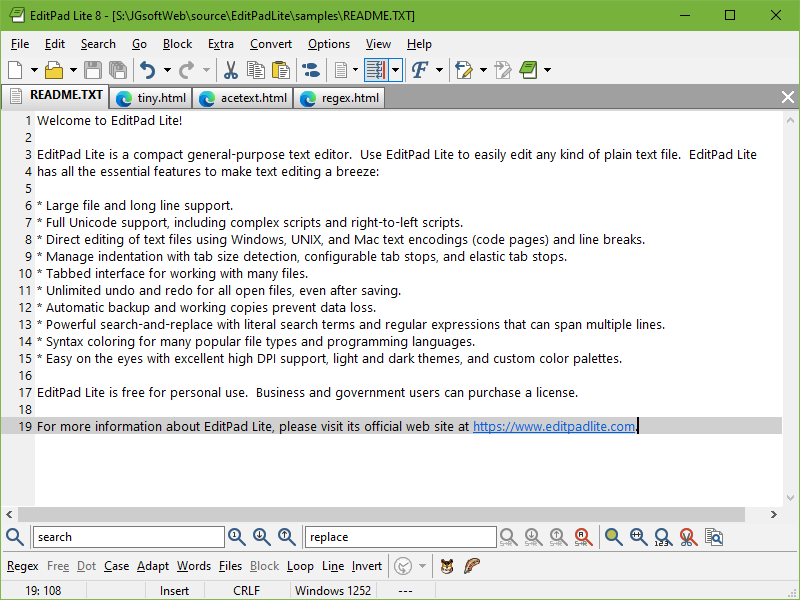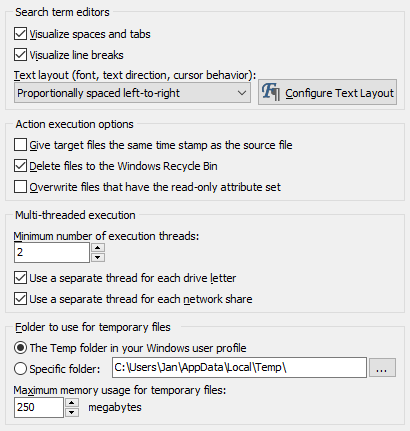

PerlRegExD2009.dpk(35): F2063 Could not compile used unit ‘PerlRegEx. Clever use of EditPad Pros search-and-replace can automate much tedious editing. PerlRegEx.pas(265): E2030 Duplicate case label PerlRegEx.pas(265): W1063 Widening given AnsiChar constant (#$B7) to WideChar lost information
EDITPAD PRO FIND NEWLINE INSTALL
When I install a Error occured(My Delphi is Delphi 2009 Update1). If you download TPerlRegEx again, it’ll properly handle Unicode in Delphi 2009.
EDITPAD PRO FIND NEWLINE CODE
In Delphi 2007 and prior, ^.$ also mathes the euro symbol, because it takes up one byte in the Windows (Ansi) code pages. (All code points take between 1 and 4 bytes.) But when the PCRE_UTF8 flag is not set, PCRE operates in 8-bit mode, and the dot always matches one byte. Automatic folding points appear as an unfolded range that you can fold with the mouse or the Fold command. When PCRE operates in UTF-8 mode, the dot matches one Unicode code point, regardless of how many bytes that code point is encoded with in UTF-8. File size is only limited by available RAM and hard disk space. It has a some very interesting features: EditPad can open as many files at a time as you want. No additional DLLs or whatever are required. EditPad requires Windows 95 or later to run.

The reason is that in UTF-8, the euro symbol is encoded as three bytes. EditPad is a text editor, a replacement for the standard Windows NotePad. The new release of TPerlRegEx fixes this by adding these five lines to the constructor: $ fails while ^.$ matches. That means SetOptions doesn’t get called, which was the only spot where TPerlRegEx set the PCRE_UTF8 flag. Unfortunatety, until today’s new release, TPerlRegEx for Delphi 2009 had a rather embarrasing bug: it didn’t actually enable the UTF-8 support in PCRE if you did not set the Options property to something different than the default. TPerlRegEx still supports Delphi 2007 and earlier using Ansi strings. Five months ago I released TPerlRegEx for Delphi 2009 which enables PCRE‘s UTF-8 support when compiled with Delphi 2009, so you can use TPerlRegEx with Unicode strings.


 0 kommentar(er)
0 kommentar(er)
